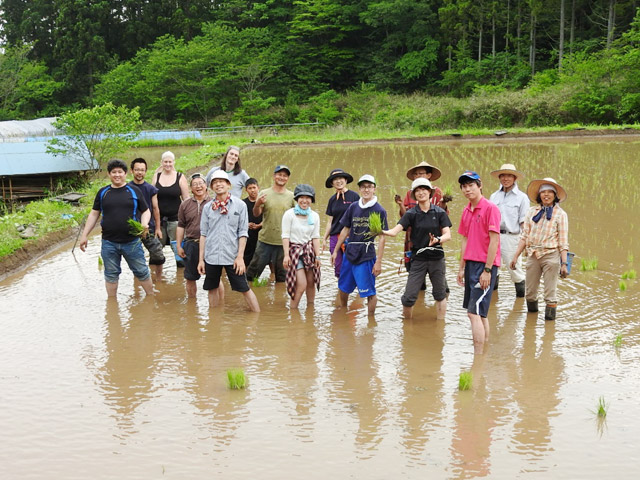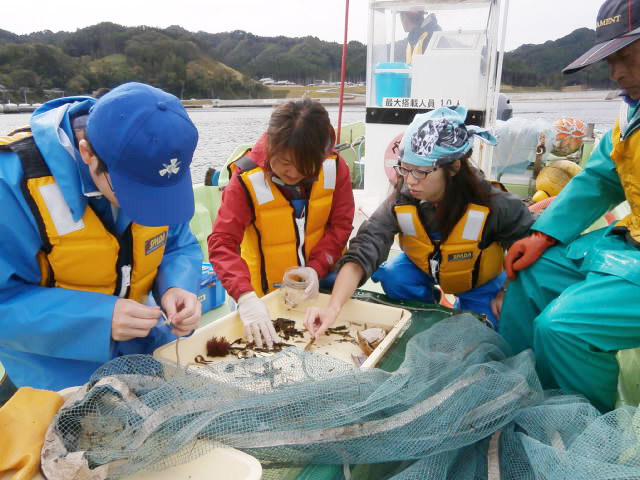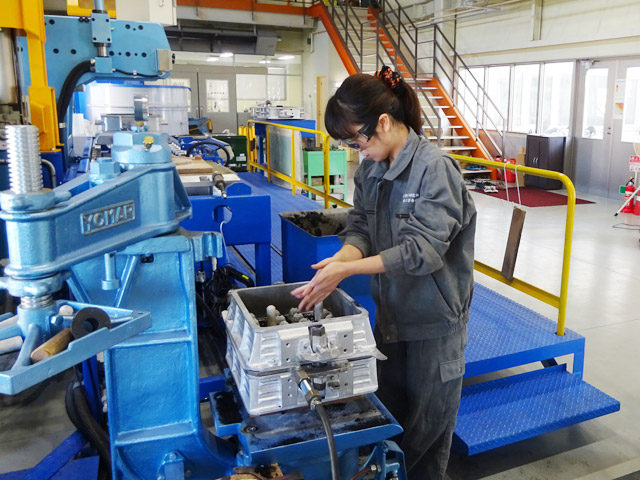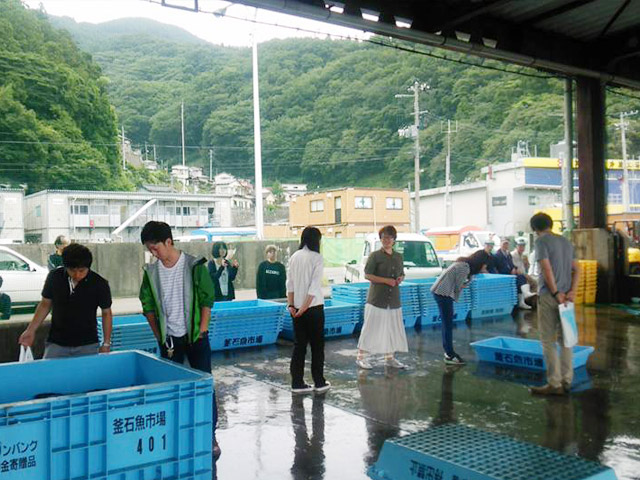Graduate Course in Regional Industry
Overview
Since traditional Graduate School education at Iwate University focused on specialization and subspecialization in each field, it enabled students to attain a high degree of specialized knowledge in specific academic fields, but did not necessarily cultivate the human resources with a wide range of interdisciplinary knowledge and comprehensive viewpoints that are required to meet the needs of regional industry and regional economics. This made it difficult for the Graduate School education of Iwate University to cultivate human resources that can actively pursue autonomous regional economic innovation based on advanced regional industry, which is one of the most important challenges facing the region today.
In order to solve this problem, our Graduate Course in Regional Industry provides specialized education in the form of an Advanced Agriculture and Forestry Program and Fishery Innovation Program to cultivate human resources that can take a leadership role in advancing and revitalizing the primary industry (the key regional industry) of Iwate Prefecture, a Casting and Molding Program to cultivate human resources that can lead management of manufacturing sites and inheriting and advancing technology in the secondary industry (craftsmanship), and Integrated Regional Economic Program to cultivate human resources that can lead coordination of regional economics while accurately handling the various problems that occur during the advancement of regional industry. Furthermore, teachers in the fields of social sciences and humanities, natural sciences, and environmental sciences cooperate to provide integrated common course subjects that teach students the wide range of basic specialized knowledge and multifaceted perspectives essential for understanding regional industry and economics, and this curriculum enables us to cultivate human resources that can lead autonomous regional economic innovation based on advanced regional industry.
Programs
Advanced Agriculture and Forestry Program
 This program provides a curriculum that teaches students who have studied agriculture and related specialized fields or forestry and related specialized fields in their undergraduate program to understand regional resources and industry as a total system from a comprehensive perspective. This enables us to provide education that cultivates human resources that have basic specialized knowledge in various fields and a perspective that sees the region as a total system that transcends industry borders, who can lead new industry innovation and transformation of the regional industry structure in order to create added value in the region, such as sixth sector industrialization for collaboration between agriculture, commerce, and industry.
This program provides a curriculum that teaches students who have studied agriculture and related specialized fields or forestry and related specialized fields in their undergraduate program to understand regional resources and industry as a total system from a comprehensive perspective. This enables us to provide education that cultivates human resources that have basic specialized knowledge in various fields and a perspective that sees the region as a total system that transcends industry borders, who can lead new industry innovation and transformation of the regional industry structure in order to create added value in the region, such as sixth sector industrialization for collaboration between agriculture, commerce, and industry.
Fishery Innovation Program
 This program aims to teach everything about the fishery industry, from the fundamentals to practical implementation, in order to cultivate specialized human resources that can contribute to the scientific development at the foundation of technical innovation in the fishery industry as an industrial system and specialized professionals that can contribute to sustainable development of the fishery industry in Japan and over the world by restoring and revitalizing the fishery industry in the Sanriku coastal region from a comprehensive perspective that views the fishery industry from the big picture. In other words, we provide education to cultivate specialized professionals and researchers that specialize in the systems that make up the fishery industry (production (fishing), processing, distribution, and sales) and either the regional industry, society, or culture that supports those systems, while also being able to solve problems from a comprehensive perspective with an overall understanding of these systems.
This program aims to teach everything about the fishery industry, from the fundamentals to practical implementation, in order to cultivate specialized human resources that can contribute to the scientific development at the foundation of technical innovation in the fishery industry as an industrial system and specialized professionals that can contribute to sustainable development of the fishery industry in Japan and over the world by restoring and revitalizing the fishery industry in the Sanriku coastal region from a comprehensive perspective that views the fishery industry from the big picture. In other words, we provide education to cultivate specialized professionals and researchers that specialize in the systems that make up the fishery industry (production (fishing), processing, distribution, and sales) and either the regional industry, society, or culture that supports those systems, while also being able to solve problems from a comprehensive perspective with an overall understanding of these systems.
Casting and Molding Program
 This program aims to cultivate advanced specialist engineers with a sense of business that know theory and actual manufacturing processes and wish for the development and evolution of Japanese craftsmanship while being sensitive to regional needs.
Therefore, not only does this program focus on fundamental scientific theory specialized for casting and molding, but it also teaches actual manufacturing processes via practical training and internships, enables students to learn about business management and quality control in MOT (Management of Technology) subjects, and cultivates the ability to solve problems with a combination of the above.
This program aims to cultivate advanced specialist engineers with a sense of business that know theory and actual manufacturing processes and wish for the development and evolution of Japanese craftsmanship while being sensitive to regional needs.
Therefore, not only does this program focus on fundamental scientific theory specialized for casting and molding, but it also teaches actual manufacturing processes via practical training and internships, enables students to learn about business management and quality control in MOT (Management of Technology) subjects, and cultivates the ability to solve problems with a combination of the above.
Integrated Regional Economic Program
 This program aims to cultivate human resources that can create a sustainable and autonomous regional economy by accurately handling the various problems faced by regional companies in the advancement of regional industry, such as employment, commercial transactions, and environmental problems, and appropriately coordinate regional companies while seeing the big picture of the overall regional economy and regional government policies.
This program aims to cultivate human resources that can create a sustainable and autonomous regional economy by accurately handling the various problems faced by regional companies in the advancement of regional industry, such as employment, commercial transactions, and environmental problems, and appropriately coordinate regional companies while seeing the big picture of the overall regional economy and regional government policies.
Therefore, this program enables students to learn specialized knowledge and ideas about economics, business administration, and corporate law, and gain the ability to comprehensively utilize that knowledge to accurately deal with the various problems facing regional companies, regional industry, and regional economics.